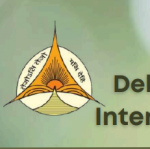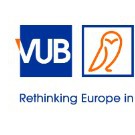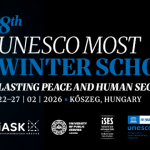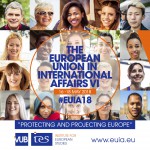EUIA Conference 2018: Policy Link Panel I: EU-UN Relations: A Safeguard for a Rule-Based International Order, Brussels, 18 May 2018
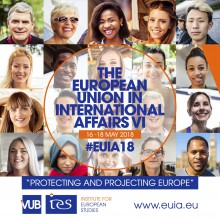
This Policy Link Panel will be moderated by UNU-CRIS Director Madeleine Hosli. The panelists are:
- Rory Keane, Head of the United Nations Liaison Office for Peace and Security in Brussels
- Matteo Gomirato, Policy Officer for UN Matters at European External Action Service
- Spyros Blavoukos, Athens University of Economics and Business
- Robert Kissack, Head of Studies at the Institut Barcelona d'Estudis Internacionals (IBEI)
In the Global Strategy for the European Union’s Foreign and Security Policy 2016, the EU is committed to promoting “a rules-based global order with multilateralism as its key principle and the United Nations at its core”. It also claimed in its EU priorities at the United Nations and the 72nd United Nations General Assembly 2017 that “the European way is also the UN way”. It is thus perceived that the EU-UN relationship as well as its commitment to multilateralism is vital for both projecting and protecting Europe on the global stage. Relations in the security realm between the EU and international organizations, such as the UN, are crucial for international peace and stability. However, as the world order is evolving, particularly with the changing transatlantic relations and the rise of emerging powers in Asia, how should the EU project itself and act through multilateral institutions to shape the international system? And what implications does the internal tightening of the European security and defense collaboration in light of the establishment of the Permanent Structured Cooperation have for future security activities both at regional and global level? In terms of conflict resolution, to what extent can the EU and UN find common grounds to address various regional crises, including for instance, the latest chemical weapon attack in Syria? Furthermore, in which domains can the EU strengthen cooperation with other regional blocs, such as ASEAN for example, to pursue and preserve multilateralism as well as to maintain their centrality or weight in the face of influence from great powers? With regard to economic and financial fields, the EU has proposed a roadmap for completing Europe’s economic and monetary union, with the European Monetary Fund expected to be created by mid-2019. How important is the deepening of financial and monetary integration of the EU for the world economy, and what possible impact will it bring about on the existing international institutions? Furthermore, due to the deadlock of the TTIP negotiations and concerns over rising protectionism on the other side of the Atlantic, is it foreseeable that the EU will reach out to potential new partners in Asia? With respect to sustainable development and climate change, the EU’s implementation of the UN Sustainable Development Goals as well as its commitment to the Paris Agreement is important to protect the interests of its citizens and project itself abroad. To what extent can the EU fill this vacuum left by the US? All in all, the panel will be centered on the question of how the EU may engage with other countries, regions and international organizations concerning a huge variety of issues in a bid to better safeguard its interests and enhance its actorness.
Please click here to consult the final programme.

